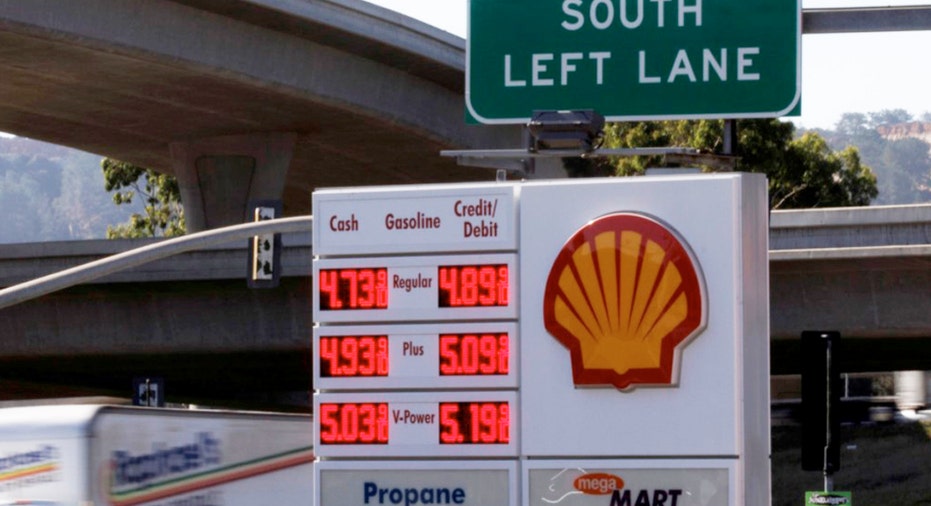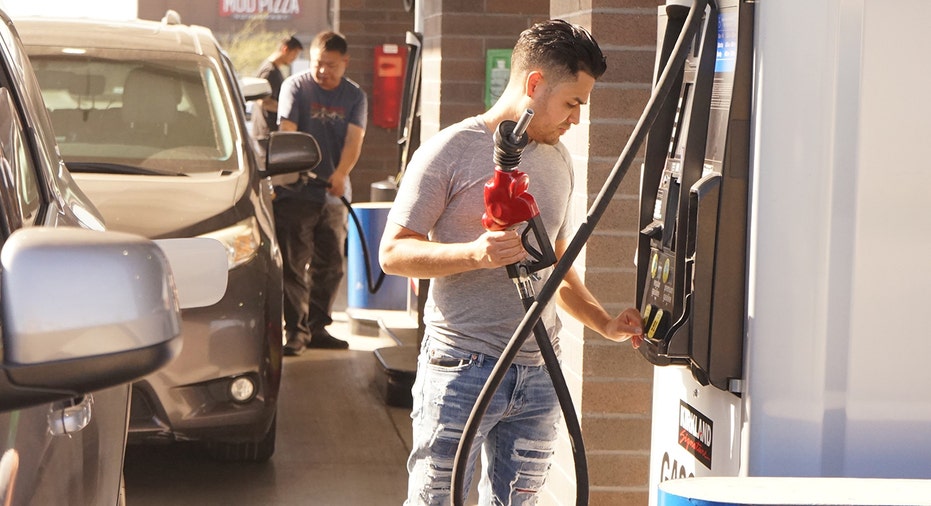Will rising gas prices impact return to work?
Commuters are considering alternative travel plans as gas prices keep climbing
Energy industry experts on Granholm, Biden shift to boost production
Energy industry experts and insiders told FOX Business that they welcome Energy Secretary Jennifer Granholm's call to increase domestic energy production.
Gas prices continue to climb and leave commuters with little choice but to pay what the market demands and hope that the situation resolves.
FOX Business spoke with commuters and gas station workers in several states across the country, finding the overwhelming sentiment is concern that the prices will only climb higher, along with uncertainty over how long the incredibly high prices will remain. In some cases, workers have started to consider alternative means of commuting to work.
Joanna, a nurse in New York City who cannot work remotely, told coworkers she now has to consider taking the train.
"To be honest, I feel like it’s getting to that point," she told FOX Business. "My gas used to take $30 to fill up, but now it’s 50…something, and I feel like it’s only climbing."
She uses close to a quarter tank to drive to work. A gallon of gas has hit $4.50 per gallon for regular unleaded, but she luckily only drives to work three or four times a week.
GAS PRICES SURPASS $4, LEADING AMERICANS TO MAKE LIFESTYLE CHANGES: AAA
Joanna wonders if the price will just continue climbing, especially since she feels that she’s at the mercy of the market. Thomas, a lawyer in South Carolina, remains so concerned about the rising gas prices that he’s considered buying a bike.
"It’s about 3 miles, I live pretty close to work." Thomas, a lawyer in South Carolina, said. "I’ve been seeing between $4.10 and $4.30 a gallon." Thomas drives a Jeep Cherokee, and he said the bus system would prove "pretty inconvenient."
Gas prices, all over the $5 per gallon mark, are displayed at a gas station in Rancho Cordova, California, Monday, March 7, 2022. | AP Newsroom
"My biggest concern is to not use up more gas than I have to right now," he said, adding that he would have to consider getting a new car if the higher prices seemed likely to remain for a year or more. "Obviously, it’s pretty expensive now. I used to tell people the most expensive I remember gas being from growing up during the recession was just above $4 a gallon."
"Now we’re well beyond $4 a gallon … I’m starting to get concerned it’s going to keep surpassing that and just getting worse."
Logan, a Virginia resident who works at a music store, said that he hasn’t seen anything close to $4 per gallon for a while. He drives 17 miles to work every day, and he got a new car recently that allowed him to get regular – which sits at $4.99 per gallon – instead of premium.
US BARRELING TOWARD RECESSION, EXPERTS SAY, AS INFLATION HITS 40-YEAR-HIGH
"I have to be there in person," Logan said, explaining that his work can’t help compensate him or alleviate the pressure he’s feeling from the heightened gas prices.
"From what I’ve been hearing, it doesn’t sound like it’s going to stop anytime real soon," he explained, pointing to President Biden’s recent comments that "there’s nothing we can do" about gas prices. "I feel like there’s other stuff that can be done that aren’t being done."
Logan worries that the prices will remain at these record highs for at least a year, which would spell trouble for gas stations. An employee at the Chiappini Gulf in Florida told FOX Business that the station had already stopped selling gas in 2020 because they could not afford it even back then.
EPA CHIEF DENIES BIDEN ADMIN DISCOURAGING INVESTMENT IN U.S. ENERGY PRODUCTION
A Sunoco Gas station worker in Winter Park, Florida, said he had noted a "small drop" of buyers but that no one was buying less gas, even with regular unleaded at $4.39 per gallon and premium peaking over $5.09.
An Iowa gas station clerk told FOX Business that the price jump has pushed people to actually buy more gas "before it gets higher." She was shocked when her colleague confirmed to her that they were selling premium gas at $4.55 per gallon.
California's consumers face a more severe scenario, with one Chevron station clerk saying that he had noted a 25% drop in both customers and the amount they were buying. Gas now runs at $5.89 per gallon for regular and $6.15 per gallon for premium.
GET FOX BUSINESS ON THE GO BY CLICKING HERE
The U.S. announced Tuesday that it would cut all Russian oil imports, effectively cutting out a significant portion of its gas supply: Russian oil and petroleum exports accounted for roughly 8% of the U.S. supply in 2021.
If Russia were eventually shut off from the global market, rogue countries such as Iran and Venezuela might be "welcomed back" as sources of oil, said Claudio Galimberti, an analyst at Rystad Energy. Such additional sources could, in turn, potentially stabilize prices.
The Associated Press contributed to this report.
























